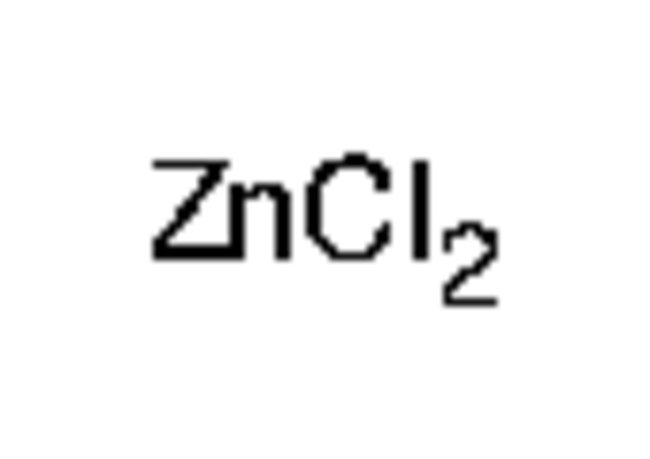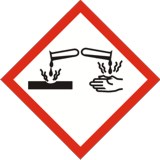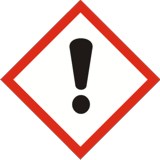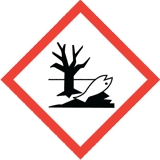Zinc chloride, ACS, 97% min, Each

|
|
Details:
It is used as a catalyst, as a dehydrating and condensing agent, soldering flux, and metal etchant. It is also employed in preserving anatomical specimens, wood preservatives, deodorant, disinfecting and embalming materials. It is likewise employed as a mordant in printing and dyeing materials, and in the vulcanizing processes of fiber and rubber. It is useful as an electrolyte in dry cell batteries, in metal industry, in galvanizing iron and as an electrolyte for electroplating. It is useful in organic synthesis, for example in the Friedel-Crafts acylatoin, Fisher indole synthesis, Lucas reagent (zinc chloride with HCl), activation of allylic/benzylic halides towards reaction with olefins or with sodium cyanoborohydride catalyzed reduction of halides, organozinc reagents for use in Negishi coupling, and aldol condensation reactions.
Additional Information
| SKU | 10010539 |
|---|---|
| UOM | Each |
| UNSPSC | 12161500 |
| Manufacturer Part Number | 01230730 |
| CAS Number | 7646-85-7 |
| Is Hazardous | Yes |
| HS Code | 2827360000 |
|---|---|
| UN Number | UN 2924 |
| Proper Shipping Name | Zinc chloride |
| Packaging Group | PG I |
| Hazardous Class | 3 |
| Label |  |
| Molecular Formula | Cl2Z |
| EC Number | 231-592-0 |
| HIN | 80 |
| Hazard Statement | H302-H314-H410 |
| Precautionary Statements | P260-P280-P303+P361+P353-P304+P340+P310-P305+P351+P338-P210-P370+P378-P403+P235-P260h-P301+P330+P331-P405-P501a-P301+P312+P330-P273-P310-P501 |
| Risk Statements | 36/37/38-50/53-34-22-51/53-67-66-19-12-11-40 |
| GHS | GHS05,GHS07,GHS09 |
| GHS (Pictogram) |    |
| Safety Statements | 26-36-61-60-45-36/37/39-16-36/37 |
| Hazard Code | Xi,N,C,F+,F,X |
| Signal Word | Danger |
